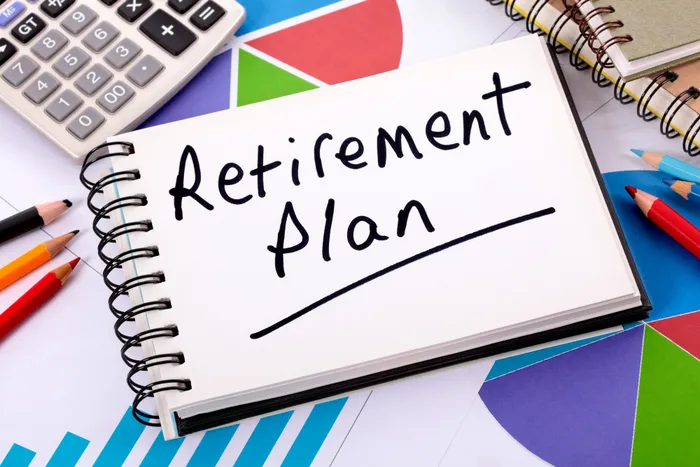How good health influences your retirement financial strategy

Explore essential financial planning considerations for a healthy retirement. Understand how good health impacts your future planning and discover strategies to ensure financial resilience as you age.
Image: File photo.
Entering retirement in good health is a blessing, but it also brings with it the challenge of planning for a much longer life. While being free of illness can create a sense of security, it’s important not to become complacent. Here are ten financial planning considerations if you're healthy heading into retirement:
1. Good health today doesn’t guarantee good health tomorrow: Being fit and healthy now doesn’t eliminate the risk of age-related illness later on, especially as conditions such as heart disease, dementia, and cancer become more likely as you age. Don’t let your current good health tempt you into cancelling or downgrading your medical aid or gap cover. Remember, if you downgrade, you can only upgrade again at the start of the next benefit year. Also, when budgeting, keep in mind that medical aid contributions typically increase by around 10% per year, which is well above inflation.
2. Plan your retirement accommodation early: While you may prefer to stay in your family home while you're healthy and independent, retirement villages often have lengthy waiting lists. Planning early gives you more options and prevents the risk of having to make hasty decisions later. If you intend to unlock capital from the sale of your home to fund your retirement, be mindful of market conditions and avoid a forced or distressed sale that could affect your financial stability.
3. Build flexibility into your retirement strategy: A healthy 65-year-old South African can expect to live another 18 to 22 years, according to the WHO’s life expectancy data. This means your retirement plan needs to remain adaptable over the long term. Your lifestyle goals and needs are likely to change over time, so avoid locking all your funds into compulsory retirement investments. Be sure to build flexibility into your portfolio by making use of appropriate discretionary investments.
4. Don’t overlook your partner’s health: If your spouse or partner has health concerns, keep in mind that your good health won’t shield you from the financial implications. Healthcare needs, especially for conditions like dementia, can influence decisions about housing, budgeting, and care requirements, so be sure to factor in future costs for assisted living or frail care, even if those expenses don’t apply to you right now.
5. Stay appropriately invested for the long term: A retirement that spans 30 years is still considered a long-term investment horizon. If your portfolio is too conservative, you risk falling behind inflation, thereby eroding the purchasing power of your capital. While it’s wise to manage risk, ensure your portfolio includes exposure to growth assets. Further, ensure that your risk profile is aligned with capital events such as travel and renovations, and that your investment strategy is both inflation-beating and liquid enough to meet short- and medium-term needs.
6. You still need a retirement plan—even if you’re working: Continuing to work into your later years can offer many benefits, including financial stability and purpose. But don’t assume that this will last forever. Illness, retrenchment, or family responsibilities could disrupt your plans. With this in mind, be sure to prepare a formal retirement plan that considers multiple scenarios, including early or involuntary retirement.
7. Create a long-term cashflow strategy: Sustainable retirement planning hinges on a clear cashflow strategy. Striking the right balance between discretionary and compulsory funds can help avoid liquidity and tax pitfalls down the line. Review your cashflow strategy regularly to ensure it remains aligned with your needs. Plan for variable expenses and be conservative in your assumptions, especially around medical costs, longevity, and inflation.
8. Be cautious when giving away assets early: While the idea of gifting assets to children or grandchildren may feel generous, it’s important to evaluate the long-term impact. Not only can these gifts trigger donations tax (20% on amounts exceeding R100,000 per year), but you may also find yourself in need of those assets later. Always conduct an estate planning exercise before parting with significant assets, and structure your intentions within the broader framework of your estate plan.
9. Don’t delay your estate planning: A common mistake among healthy retirees is to postpone estate planning on the assumption that there’s plenty of time. Unfortunately, life is unpredictable. The absence of a valid Will or structured estate plan can have devastating consequences for your loved ones. Prioritise your estate plan early, and review it regularly as your relationships, assets, and goals evolve.
10. Put a long-term healthcare plan in place: Good health can foster a false sense of invincibility, but it’s crucial to prepare for future healthcare needs. Ask yourself practical ‘what if’ questions: What if I require long-term care? What if I lose my mental capacity? What if my spouse needs 24-hour care? Rapid medical advances may allow you to live a long life with chronic illness, but that comes with rising costs. Ensure you plan realistically for these possibilities and include appropriate medical and long-term care cover in your retirement budget.
Enjoying good health at retirement is a gift, but not a guarantee. Planning for a long, healthy life means building financial resilience, maintaining flexibility, and preparing for the unknown. A well-structured retirement plan ensures that your good health enhances your freedom, while still protecting you against life’s inevitable changes and potential challenges.
* Odendaal is an associate financial planner at Crue Invest.
PERSONAL FINANCE